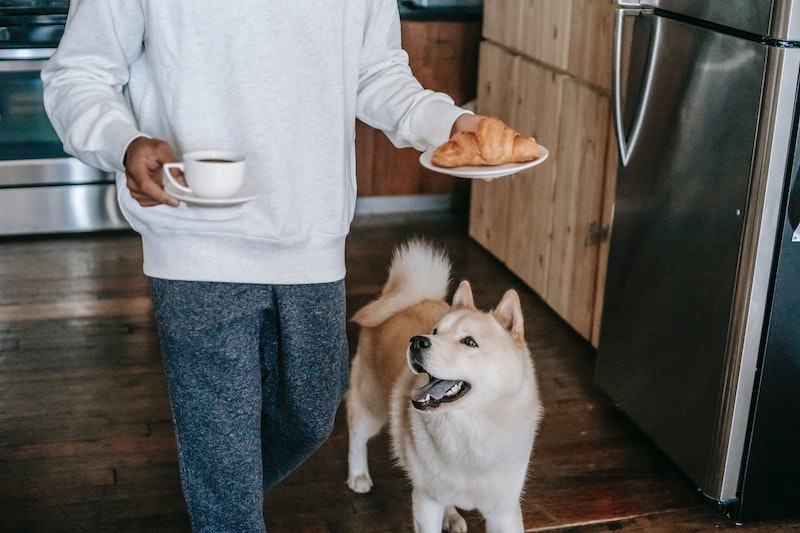Deciding to share your living space with someone is a significant step. So what sort of questions should you be asking the person who wants to move in with you?
We’re talking about more than just splitting the rent and utilities and sharing a Netflix password. Good roommate chemistry is key. And a proper roommate interview can protect you from an actual nightmare living situation.
Let’s dive into all the questions to ask prospective roommates. And don’t forget that final question for a future roommate: Are you going to get renters insurance? (This is super important, since your own renters insurance policy wouldn’t cover your roommates.)

Setting the tone for your roommate interview
Your roommates might not end up becoming your next BFFs, but try to keep the interview process casual and conversational. This isn’t a job interview—you’re not grilling a candidate about what their greatest strengths and weaknesses are.
At the same time, you don’t want to be so casual that you end up chatting happily about the last great movie you both saw, and neglect to cover the boring-but-important stuff, like finances, cleaning habits, and schedules.
Employment, schedules, and finances

Your prospective roommate’s financial stability and work schedule are vital to ensure they can meet their financial obligations and understand when shared spaces like the living room may be needed for quiet or work.
Here are some relevant questions you might want to cover.
1. Where are you currently working, and what’s your schedule like?
It can seem lame to ask someone “what do you do for a living?”, but it’s absolutely key when getting to know prospective roommates. Their answer will give you an idea of their financial stability, and also the hours they keep. For instance, a bartender is going to have a very different day-to-day schedule than a corporate secretary.
2. Do you work from home ever, or often? If so, would you be able to do so from your room, or would you need to work in the living room?
Post-pandemic, hybrid and remote work situations are increasingly common. Find out if your potential roommates will be camped out in the apartment on endless Zoom meetings from 9 to 5—and if they plan to use common areas when they WFH.
3. Can you comfortably afford the rent and security deposit? Is it similar to what you’ve paid in the past? Do you have savings in case your work situation changes?
Don’t get queasy when talking about money. It’s not tacky—it’s essential. If the rent is a “reach” for your future roommate, you might end up in trouble if they lose their job or don’t have any savings.
4. How have you split shared costs, like utilities, cleaning supplies, new light bulbs, and those kind of things?
Share your own preferences here as well. Do you prefer to have all the utilities in your name, with roommates Venmoing you their share?
BTW you can also head to our complete guide on how to set up utilities, if you’re interested in some tips for simplifying your moving process.
Lifestyle and habits

These questions should give you insights into what the day-to-day with your prospective roommates might look like.
5. Do you smoke or vape? If so, are you cool with only doing so outside (not even in your room)?
Of course, this is the right time to share your own smoking habits. It’s easier, and more effective, to set boundary rules early.
6. What’s your daily routine and sleep schedule like? Are you a night owl or an early bird?
It’s different strokes for different folks, but you might want a roommate whose schedule aligns with your own. Then again, someone whose schedule is completely opposite to your own might mean more alone time and privacy in the apartment.
7. How do you spend your free time?
This isn’t an opportunity to judge a potential roommate for their hobbies. But it is an opportunity to find out if your future roommate is an amateur opera singer, or is planning to turn the apartment into a DIY Crossfit obstacle course.
8. How do you feel about cleaning? Is cleanliness very important to you, or are you okay with a bit of mess and disorder?
It’s unlikely that someone will willingly identify as a “total slob.” But the way a prospective roommate answers this question will shed some light on whether they’re a proud neat-freak or someone who doesn’t care if the dishes pile up in the sink for a day or two.
9. What are your thoughts on overnight guests? And significant others?
There’s no easy way to defend against that most common of apartment headaches: the roommate who starts dating someone who unofficially moves in, without paying rent. But sussing out a potential roommates feelings in this area can avoid tension down the road.
10. Do you have any pet peeves or deal-breakers when it comes to living situations?
This is a swift way to find out if anything you do will drive your new roommate crazy, and vice versa.
11. What sort of stuff will you be moving in with? Is there anything that you’d want to store in common areas?
Some prospective roommates might be arriving with a single suitcase and a bed. Others will pull up with a U-Haul truck stuffed to the brim. You’ll probably want to know which scenario to anticipate!
12. What’s your stance on sharing food or personal items? Are you someone who really prefers to keep everything separate and private, or do you appreciate a more communal vibe?
Just in case your future roomie is an armchair anarchist who thinks “property is theft!” (and will soon be eating all your yogurt, and borrowing your razor).
13. In past roommate situations, how have you handled things like chores?
There’s a lot of room between “sweeping up every now and then” and “following a chore wheel.” Asking about how someone has dealt with this in the past will give you a pretty good idea of what the future holds.
14. Would you say you need your personal space and alone time?
You might want a roommate who’s eager to crack open a bottle of wine on a Friday evening and rehash the week’s drama. Or you might prefer someone who minds their own business and is more subdued, respectful, and no maintenance.
Diet, pets, and future plans

After you’ve crossed the big questions off your list, it makes sense to get a bit more granular. Some of the following questions might make sense for you:
15. Do you generally like to cook, and do you cook often?
Consider the size of your kitchen here, your own sensitivity to things like strong cooking smells, and whether you’ll end up competing for limited space and resources around dinner time.
16. Do you have any major dietary restrictions or allergies? Are you vegan or vegetarian?
Even if you’re not cooking together or sharing meals, it helps to know if a future roommate might have a fatal reaction to peanuts, or if they’ll be scowling at you every time you decide to sear a steak.
17. Are you planning on bringing a pet with you, or did you have hopes of adopting a pet in the near future?
If your potential roommate is planning on bringing their fur fam along, it might be a dealbreaker—or an exciting chance to live with a dog or cat that you’re not directly responsible for.
18. How long do you see yourself living in this apartment?
If the answer is “not quite sure, but I might be joining the Peace Corps in two months,” you could end up restarting your roommate search much sooner than you’d like.
General compatibility
The broader, slightly more probing questions below will suss out potential red flags or incompatibilities.
19. How do you think friends or past roommates would describe you?
There’s no “right answer” to this one, but the results should be illuminating.
20. What’s the best roommate situation you’ve ever had? What’s the worst?
If they start ranting about how they’ve never had a good apartment share because of “all the drama,” this might be a warning sign.
21. Where were you living before, and what made you decide to leave?
An honest answer to this question should let you know if there are any major incompatibilities that haven’t yet turned up in your interview.
Inappropriate or illegal questions
Questions about race, religion, national origin, or disability, for example, are not just inappropriate but illegal under the Fair Housing Act. Remember, the goal of the roommate interview is to identify compatibility, not to invade personal boundaries.
TLDR: Feel free to ask a prospective roommate how they feel about you playing punk rock on the living room stereo every morning, or if they’d want to organize a chore wheel for the kitchen. Don’t ask them whether they’re devoutly Catholic, or have ever been diagnosed with a mental illness.
Before we go…
Your perfect roommate might be a reserved bookworm or a chatty party animal. But once you’ve found your ideal match, it’s time to find them the ideal renters insurance.
Remember, even if you have a renters insurance policy yourself, it won’t cover your future roommate’s valuables.




